Future of traditional ram’s horn crook under threat
and live on Freeview channel 276
County Armagh man, Laurence Barkey, has been meticulously crafting traditional sticks for the past nine years, but has shared his concerns over a lack of ram horns which are needed for a popular style of crook.
“The traditional ram’s horn stick is very popular with people who go to sheepdog trials and farmers who are attending pedigree sales,” Laurence explained.
Advertisement
Advertisement
“Anybody that makes ram horn crooks needs three-year-old ram horns – they take two to three years to season.
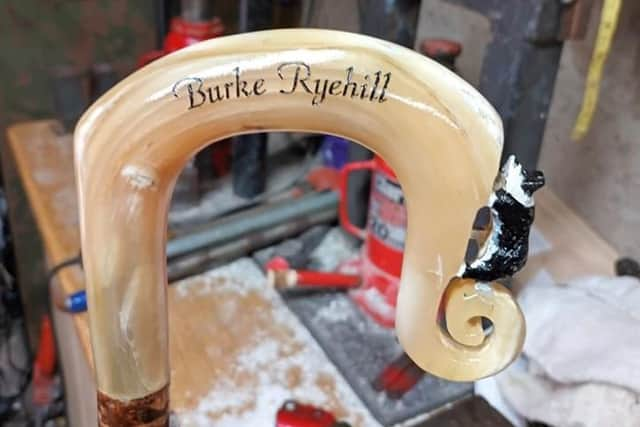

“I got a permit allowing me to obtain the horns from abattoirs, but that isn’t something that they are interested in.
“So, we are relying on the farmer that has a casualty and can cut the horn off for us.
“That’s the only way we can obtain them at present.”
According to Laurence, on the mainland it is a very different story.
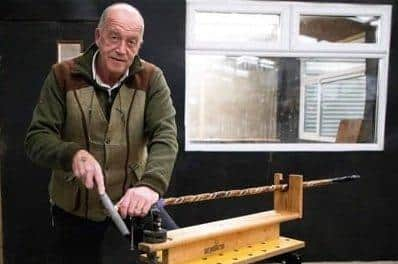

Advertisement
Advertisement
“I’ve spoken to other stick makers in the UK and the smaller abattoirs there keep the ram horns for the stick makers.
“Here, it’s all big factories.”
There are believed to be just five craftsmen making ram’s horn crooks in Northern Ireland, the youngest being 45 years old.
There are two makers in Antrim, two in Armagh and one in Co. Down.
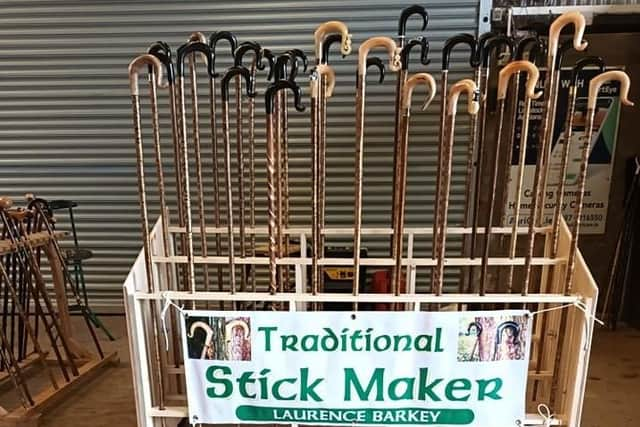

Laurence added: “I have 15-20 horns seasoned, ready for work.
“One of the other men has five.
“We are struggling here.
Advertisement
Advertisement
“We are prepared to give a few pounds for them - we’re not looking them for nothing.”
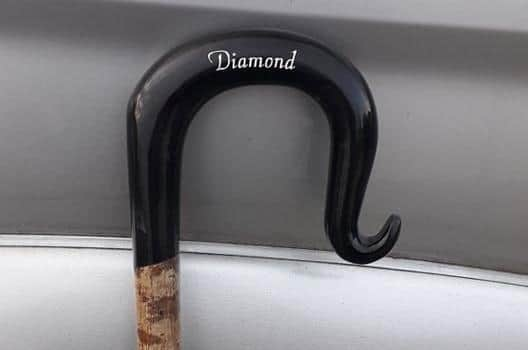

Aside from the shortage of horns being made available, Laurence is worried the stick making craft in general will die out if some younger people don’t learn the skill.
“It’s young makers we need, because this craft is going to die if there is no one to carry it on,” he warned.
Laurence began making traditional sticks after falling in with a Markethill man by the name of Billy Willis.
Advertisement
Advertisement
Billy taught Laurence how to craft the sticks and, after his passing, the Middletown man was left learning from his mistakes.
“That’s how I got into it,” Laurence continued.
“Not every horn is going to make a crook.
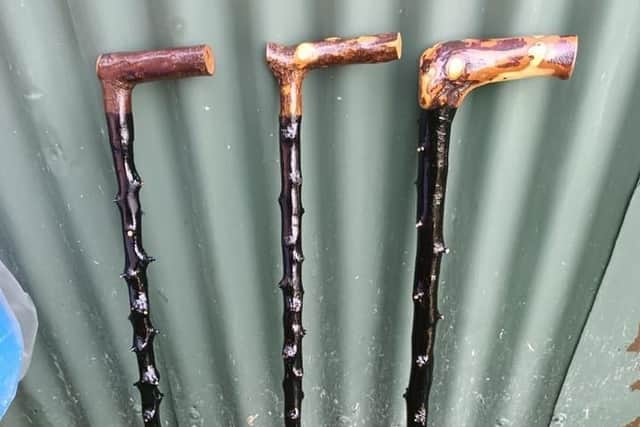

“Blood blisters can run very deep and, after 20 hours working at a horn, you can realise it runs too deep.
“It’s not as simple as every horn you get being used.
“You could have 60 horns and, out of them, you could be lucky to get 40 that can be used for a stick.
“As for the show stick, that’s a thing of the past in Northern Ireland.
Advertisement
Advertisement
“In the past, they fattened the sheep naturally and you wouldn’t have got the white powdery substance inside the horn. You don’t want that in a show stick.”
The talented craftsman said people don’t realise the amount of work that goes into stick making.
He explained: “It would take between 35 and 40 hours to make a stick.
“There’s the boiling process, then you flatten it and, what we call in the industry, turn it inside out.
Advertisement
Advertisement
“Once you get it down to the right size you bend it round a former, that gives you the shape of it, you have to turn the nose up, then filing and sanding to finish the whole lot off.”
Other factors threatening the future of traditional stick making include Brexit and hedge cutting practices.
“The black buffalo is going to be a thing of the past due to Brexit,” Laurence stated.
“Black buffalo will be like gold in a few years’ time.
“Blackthorn is going to be a thing of the past also, because of the hedge cutting and hedges being ripped out.
“The blackthorn stick has always been popular, too.”
Advertisement
Advertisement
As for horns, Laurence is hoping farmers will come to their aid and help to keep the age-old craft alive.
And, the makers will consider most horned breeds, including a recent introduction to Northern Ireland, the Valais Blacknose!
“The Welsh sheep horn is good, it’s a lot smaller, but we don’t get them here,” Laurence revealed.
“Here, it’s the Blackface and Dorset Horn we get the most.
“They’re big and take a lot of work as we have to take them the whole way down.
Advertisement
Advertisement
“The Jacob horn is very good, but they’re like hen’s teeth, nearly impossible to get.”
And if you fancy something unique, the horn from a Highland cow can be used on a stick too!
“It has to be a cow’s horn,” Laurence added, “it can’t be a bull.
“The cow’s horn has lighter walls.
“But, it takes around 90 hours roughly to make a stick with a Highland cow horn!”
Advertisement
Advertisement
The Co. Armagh man is busy working on Christmas orders at the moment.
He can be found at a variety of shows throughout the year and is kept extremely busy with orders for his sticks.
“We are constantly on the go,” he continued.
“The first show is the steam rally in Antrim, then Balmoral, then the incidentals – here, there and everywhere.
“It’s went from being a hobby to having hardly any time to look around me.
“You cannot count your hours in this craft,” he concluded.